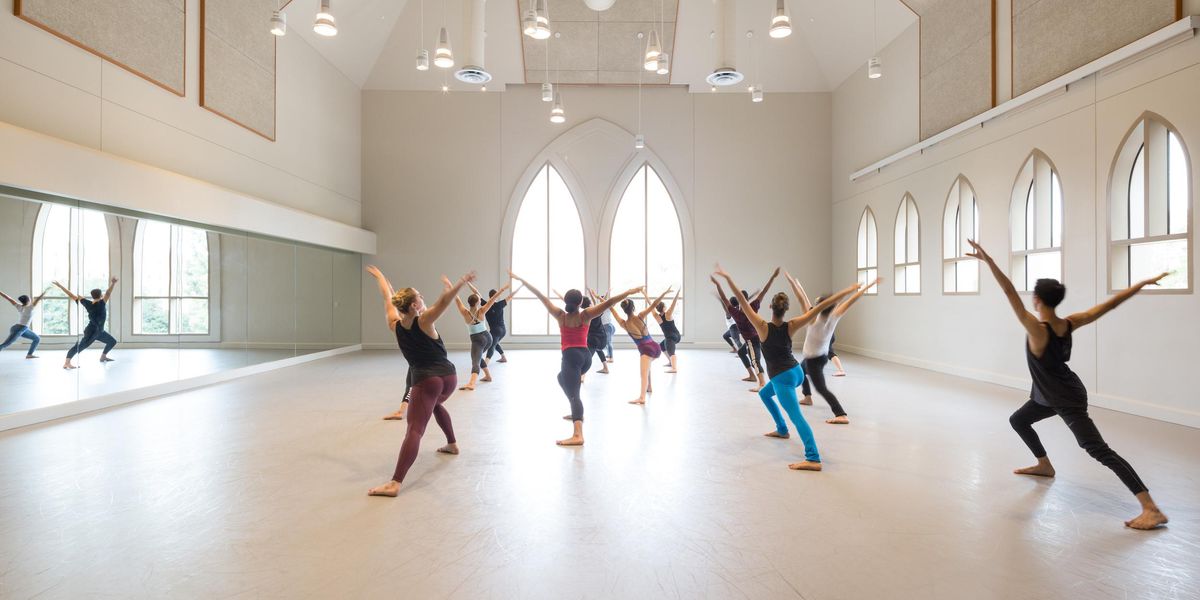Baryshnikov, A Different Kind of Dancer
Mikhail Baryshnikov may not be dancing full out these days, but he’s applying his formidable experience as a performing artist to other projects. The latest is a tribute to his great friend Joseph Brodsky, the Russian poet in exile who died in 1996.
Baryshnikov performing in Brodsky/Baryshnikov. All photos by Stephanie Berger.
Directed by Alvis Hermanis, the artistic director of the New Riga Theater, Brodsky/Baryshnikov at the Baryshnikov Arts Center does not list a choreographer in the credits. But the 68-year-old dancer worked collaboratively with Hermanis on both speaking and moving, and there were passages where he translated Brodsky’s dense, unflinching poetry into movement. Hermanis is quoted in this review as saying about the movement sections, “These things are not fixed—each evening they’re slightly different… It’s not the possibility of dance, but the impossibility of dance.”
Perhaps what he meant was that Misha has shed his ballet technique for this role. Having worked with many downtown choreographers, from Trisha Brown to Yvonne Rainer to Annie-B Parson, he has gained a more natural way of moving that does not identify him as a dancer first. But there is no doubt that he expresses himself best in motion. In Brodsky/Baryshnikov, even though he was playing a man nearing the end of his (rather gloomy) life, he still cut to the heart of things in movement.
Within the intimate space of the Jerome Robbins Theater, scenographer Kristine Jurjane created an even smaller area, a kind of enclosed 19th-century porch, a space for fantasy.
Brodsky’s poetry, either spoken by Baryshnikov or on recording, provided an astonishing range of light to dark—mostly dark. We English speakers in the audience caught what we could from the subtitles above the enclosure. Even though Misha wasn’t performing the steps of a choreographer, I kept seeing, through the vessel of his motion, other dances in history:
- During a poem that included the line “You never see the same cloud twice,” Baryshnikov seemed to enact Nijinsky-esque profile positions. Afternoon of a Faun.
- During a section about a black stallion, he struck a proud pose, leg forward on an arched foot, then eventually got jittery, almost spastic. Flamenco gone AWOL.
- He flitted swiftly across the porch to a poem about the short life of a butterfly. As the verbal scroll above described its ornate wings, he crossed his wrists and fluttered his fingers. The butterfly faded, but not quite. We were close enough to see the faint beating of the hands as the butterfly lost its life. As poignant as any Dying Swan.
- In a poem about tragedy, Baryshnikov seemed to stab his belly and pull out his guts. Quite alarming in its violence. I haven’t seen anything that intense onstage since Eleo Pomare’s Junkie.
-
And in the most elegiac section, while a poem described a flower, Misha
surrendered to its fragrance with such pleasure that he looked like a woman lost in a dream. Spectre de la Rose.
The words of the last poem resonated: “Life—is the sum of tiny movements.”
Brodsky/Baryshnikov
runs until March 19. Click here for more info.




